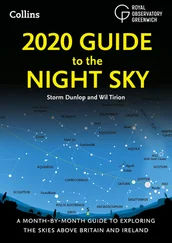“It’s OK,” she could hear her mother say. “Seedy is good. Half of my clients are paying me with their rent money. It’s more important to them to know what the stars say than to have a new car.”
“Rent money doesn’t buy a new car,” Irene would challenge. “It buys rent. Do the stars say they will be homeless?”
“Irene, stop,” her mother would have said. “Don’t be so literal. Not every word means what you think it means.”
Irene’s tongue was wide in her mouth, and her lungs felt too large for her chest. Her heart skipped, pushing against her heavy ribs, rapping on the wall of her body. Maybe her mother had a heart condition. Maybe a heart attack pushed her down the stairs. Was Irene cursed with it now? At what point does the mother’s heart beat in the daughter’s body? She was driving and not thinking. She was prickling in her rib cage. The thought of her mother’s house, empty. The thought of her mother, dead.
In a long row of shabby homes, her mother’s house was beautifully kept, and her lawn, among all the drab ones, was emerald green. A tidy rose garden sent shoots up over the porch railing and two urns full of petunias overflowed next to the steps. In the window a sign hung, dark now, that said PSYCHIC and had a wide eye beneath. When her mother was home, the eye was lit and would blink open and shut. Now it was dark. I don’t want to go in, thought Irene. I don’t want to see.
She parked on the street and shimmied out of the car, keeping the door tight to the car to avoid traffic. Keys in hand, she walked up on the porch. The mailbox, nailed to the wall, was full to bursting with flyers, envelopes, catalogs. Irene pulled the stuff out of the box automatically, as she always did for her mother. The box was always overflowing, so this in itself did not mean that someone had died. It was no different from any other day. She looked down at the shoe rack next to the door. No different: flip-flops, sandals, ballet flats, and tennis shoes. Bernice believed that shoes belonged outside the house.
Irene put her key in the lock and stood for a minute. She opened the door, keeping the gap narrow and tight again, shimmied inside. Everything looked the same as she remembered.
Except on the floor at the bottom of the stairs there was a place where her mother had lain down and died. There was no blood, no mark or shocking indentation. There was only smooth linoleum beside a carpeted staircase, and that was it. The house was unbearably silent, smelled of incense, and felt unaccountably damp. Irene drew some long breaths, felt her heart racing. She set her keys down on the banister, as always.
The foyer and the front room were for the clients. Tie-dyed scarves, fringed window treatments, and beaded curtains covered the walls and windows. A tall red shaded lamp stood in the corner. A long dark sofa stretched low under the window, and a red velvet armchair sat near it, where her mother would sit for consultations. On the coffee table Irene saw the accoutrements of Bernice’s trade: the crystal ball, the tarot, bones in a little cup. There were books for consulting sky maps and charts. An old tape recorder in a leather case, which Bernice used to record all of her sessions, just in case she forgot something later. Irene walked across the room and picked up a large wooden box engraved with a picture of a bird with no beak. It was locked. There was a new footstool, embroidered in heavy thread with trees and vines.
Irene sat on the sofa and looked around. She was overwhelmed by the new absence in her mother’s house, yet she was also overwhelmed by the way it was exactly the same.
There was a knock at the door.
Irene went and opened it, and found the neighbor, Mrs. Betty, standing there.
“Oh, honey,” said Mrs. Betty. “I’m so sorry.”
“Thanks,” said Irene.
“I just miss her so much,” Mrs. Betty went on. “She was an angel, an angel.”
Mrs. Betty reached out one arm as if she was going to hug Irene, but when Irene didn’t come forward, she ended up just patting her on the shoulder.
“Thank you,” said Irene.
“When I saw her, I just cried,” she said. “Your sweet, sweet mother and all the troubles and trials she had in this life, and all the good she did for other people, and all the people who loved her, and—”
“That must have been awful for you—finding her,” said Irene. “Dead.”
“Oh, I’m more sorry for you, honey. With you so far away when it happened.”
“Thank you,” said Irene again. “Well, I’ll be sure and let you know, if there is a funeral. When it is.”
Mrs. Betty hesitated on the threshhold.
“There was something I wanted to tell you,” she said.
“What?” Irene asked.
“She had a client that day.” Mrs. Betty looked at Irene with an eyebrow raised. “Right before.”
“Really?” said Irene. “She must have had clients all the time—”
“Yes, well,” said Mrs. Betty. “This client would have been the last—to see her. But I don’t know who it was.”
Irene swallowed hard, and frowned at Mrs. Betty. She didn’t care about her mother’s clients. The neighbor caught her mouth in her hand and said, “I’m sorry, I’ve upset you. I’ll go.”
“It’s OK,” Irene started to say, but she was thankful Mrs. Betty was turning to leave.
“And if you need anything else, please—”
“I’ll be sure and call,” said Irene.
“You can come over for dinner,” added Mrs. Betty. “Just come on over; you don’t have to let me know.”
Irene walked back through the beaded curtain and into the kitchen, the area of the house where clients were never invited. Irene stood next to the garbage can looking at dishes in the sink: a large mug with two tea-bag strings wrapped around the handle, tea bags inside. A large spoon. A plate, previous contents unknown. A glass, containing about half an inch of water. Near the faucet was a toothbrush and a tube of toothpaste. Apparently her mother had been sleeping downstairs. On the windowsill was a hairbrush, full of hair. She should pull out all that hair and throw it away, or she should keep it forever, in case her mother could be cloned. She should never clone her mother. She should clone her mother, and raise her as her own, parent her right, make things turn out differently for her poor, poor mother. Irene felt her heart scrabbling in her chest like a squirrel climbing around and around one of her ribs. She put her fingers on her wrist and took her pulse. Fast. She didn’t wait to count the beats against her watch. She could feel them pounding behind her eyes. Slow down, heart.
Next to the sink, on the drainer, there was a red bowl and a few pieces of silverware, a frying pan, a couple of small plates, and a cleaned container of cottage cheese, ready to reuse. She should just throw that away. No one reuses cottage cheese containers. The sight of this irritated her, especially since for years she had given her mother Tupperware and other containers to try and get her to stop reusing plastic containers from deli meat, cheeses, yogurts, and more.
“It’s disposable, mother,” she had said.
“Nonsense, it’s perfectly good,” her mother had asked. “Just look at it. Who would throw that away?”
Irene picked up the cottage cheese container and opened the garbage can. It was half full. She considered digging through her mother’s trash to re-create the last few days before she died. What had she eaten? What else had she thrown away? Obviously not any mail. It was scattered all over the dining room table.
Her mother never threw mail away. She never threw anything away. The half-full garbage was probably at least a week’s worth of trash and only things she couldn’t find a way to put in a box, preserve, bag up, or rinse out. Coffee grounds, tea bags, some old lettuce. An empty bag of oatmeal. And something at the bottom that was clunking, clunking. Reaching down through all the trash she pulled out a long shape wrapped in many plastic grocery bags. Irene took her hand away and let the bottle fall back down in.
Читать дальше












